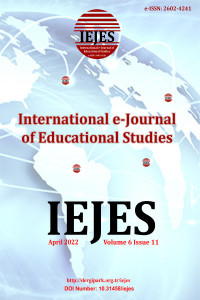Towards Harmonisation of Language Teacher Education Programmes in Malawi: An Analysis of Language Teacher Programmes
This study aims at analysing language teacher education programmes from three secondary school teacher training institutions in Malawi. It also discusses the possibility of having a consolidated language teacher education programme for all institutions. The data were generated through document analysis of the language teacher education programmes and route maps. The data shows that the three programmes have a four-part kind of teacher programme which has courses in education foundation, teaching methodology, content and teaching practice. The courses offered are basically similar in all the three institutions with minor differences, especially in terms of the number of courses and the level at which they are offered. Considering the fact that these three institutions aim at producing teachers that will handle the secondary school English curriculum there is a possibility of having a consolidated language teacher education programme.
Anahtar Kelimeler:
Content, pedagogy, education foundations, methods
Towards Harmonisation of Language Teacher Education Programmes in Malawi: An Analysis of Language Teacher Programmes
This study aims at analysing language teacher education programmes from three secondary school teacher training institutions in Malawi. It also discusses the possibility of having a consolidated language teacher education programme for all institutions. The data were generated through document analysis of the language teacher education programmes and route maps. The data shows that the three programmes have a four-part kind of teacher programme which has courses in education foundation, teaching methodology, content and teaching practice. The courses offered are basically similar in all the three institutions with minor differences, especially in terms of the number of courses and the level at which they are offered. Considering the fact that these three institutions aim at producing teachers that will handle the secondary school English curriculum there is a possibility of having a consolidated language teacher education programme.
Keywords:
Content, pedagogy, education foundations, methods,
___
- Andrews, S. (2007). Teacher language awareness. Cambridge: CUP.
- Attardo, S., & Brown, S. (2005). What’s the use of linguistics? Pre-service teachers’ beliefs towards language use and variation. In Nat Bartel (Ed.). Applied Linguistics and Language Teacher Education, (pp. 91-102). Boston: Springer.
- Bartels, N. (2005). Applied linguistics and language teacher education: what we know. In Nat Bartel (Ed.), Applied Linguistics and Language Teacher Education, (pp. 405-425). Boston: Springer.
- Barahona, M. (2014). Exploring the curriculum of second language teacher education (SLTE) in Chile: A case study. Prospectiva Formacion de Profesores Junio, 53(2), 45-67.
- Beytekin, O., & Chipala, H. (2015). The quality standardisation of teachers in Malawi government secondary schools. British Journal of Education, Society and Behavioural Science, 11(1), 1-9.
- Caboroglu, N. (2014). Re-visiting the theory and practice gap through the lens of student teacher dilemmas. Australian Journal of Teacher Education, 39 (2), 88-109. https://dx.doi.org/10.14221/ajte.2014v39n2.10
- Darling-Hammond, L. (2006). Constructing 21st century teacher education. Journal of Teacher Education, 57(3), 300-314.
- Freeman, D. (2009). The scope of second language teacher education. In A. Burns & J.C. Richards (Eds.), Cambridge Guide to Second Language Teacher Education, (pp 11-19).Cambridge University Press.
- Graves, K. (2009). The curriculum of second language teacher education. In A. Burns & J. C. Richards (Eds.), Second language teacher education, (pp. 115-124). Cambridge: Cambridge Press.
- Johnson, K. E. (2009). Trends in second language teacher education. In A. Burns & J.C. Richards (Eds.), Cambridge Guide to Second Language Teacher Education, (pp 20-29). Cambridge University Press.
- Karakas, A. (2012). Evaluation of the English language teacher education programme. ELT Weekly, 4(15), 1-16.
- Kelly, M., & Grenfell, M. (2004). European profile for language teacher education: A frame of reference. University of Southampton. Retrieved: 8th July, 2018, from http://www.researchgate.net
- Konig, J., Lammerding, S., Nold, G., Rohde, A., Strauß, S., & Tachtsoglou, S. (2016). Teachers’ professional knowledge for teaching English as foreign language: Assessing the outcomes of teacher education. Journal of Teacher Education, 67(4), 320-337.
- Mattson, M., Eilertsen, T. & Rorrison, D. (2011). What is practice in teacher education? In Mattson, M., Eilertsen, T. & Rorrison, D. (eds). A practicum turn in teacher education, Volume 6. Boston: Sense.
- Nkhokwe, M., Ungapembe, F. & Furukawa, N. (2017). Identification of groups of secondary school teachers who leave the teaching profession in Malawi. Field Report 3. JICA Research Institute. Retrieved: 10 October 2017, from http://www.jica.go.jp
- Richards, J. (2008). Second language teacher education today. Regional Language Centre Journal, 39(2), 158-177.
- Schultz, R. (2000). Foreign language teacher development: MLJ-perspective 1916 – 1919. The Modern Language Journal, 84 (4), 495-522.
- Shulman, L., (1986). Those who understand: knowledge growth in teaching. Educational Traditions, 15(2), 4-14.
- Shulman, L. S. (1987). Knowledge and teaching: foundations of the new reform. Harvard Educational Reviews, 57(1), 1-21.
- Tylor, N., Deacon, R. & Robson, N. (March, 2019). Secondary level teacher education in sub-saharan Africa teacher preparation and support. Overview Report. JET Education Services
- Ünsal, Y.. & Atanur-Baskan, G. (2021). The problems of teachers who have immigrant students in their classes and solutions. Journal of Computer and Education Research, 9 (17), 199- 224. https://dx.doi.org/10.18009/jcer.838228
- Van Driel, J. H., & Berry, A. (2010). Pedagogical content knowledge. In P. Peterson, E. Baker, & B. McGaw (Eds.), Encyclopedia of Education (pp. 656-661). Elsevier.
- Wright, T. (2002). Doing language awareness: Issues for language study in language teacher education. In Hugh Trappes-Lomax & Gibson Ferguson (Ed.), Language in Language Teacher Education, Volume 4. (pp. 113-130). Amsterdam: John Benjamins.
- Zengin, M. & Ataş-Akdemir, Ö. (2020). Teachers’ views on parent involvement for refugee children’s education. Journal of Computer and Education Research, 8 (15), 75-85. https://dx.doi.org/10.18009/jcer.649547
- Başlangıç: 2017
- Yayıncı: Tamer KUTLUCA
Sayıdaki Diğer Makaleler
Character and Values for World Citizenship: The Case of Social Studies Prospective Teachers
Dewı Putrı PERTIWI, Zamzani ZAMZANI
Çiğdem Gamze ÖZKAN, Yeter KURT, Aysun BAYRAM
The Role of Portfolio Assessment and Quizzes on Class Attendance and Language Achievement
